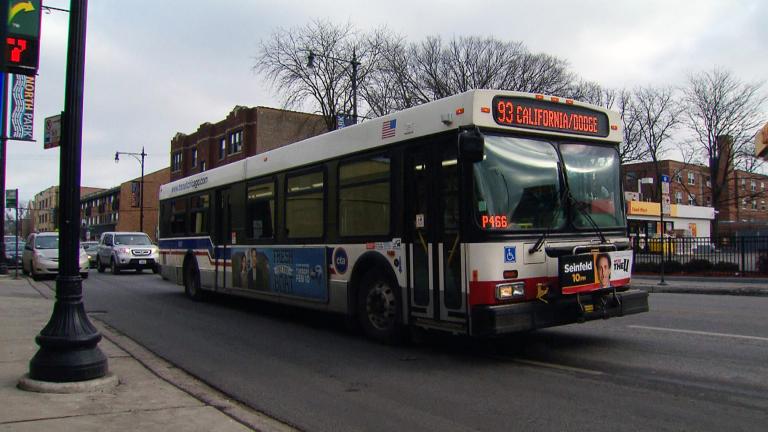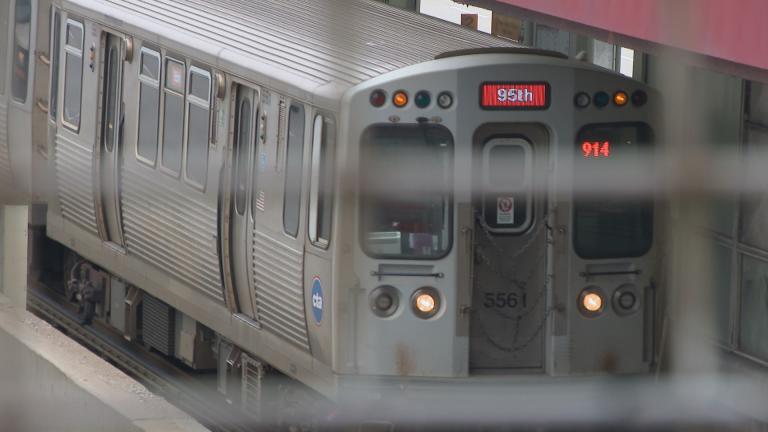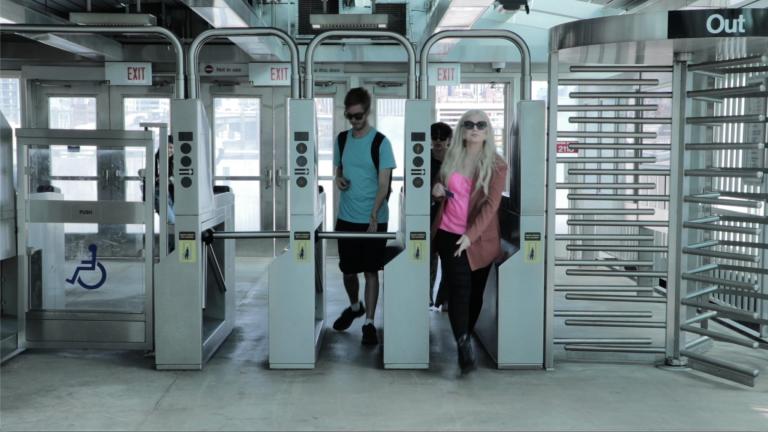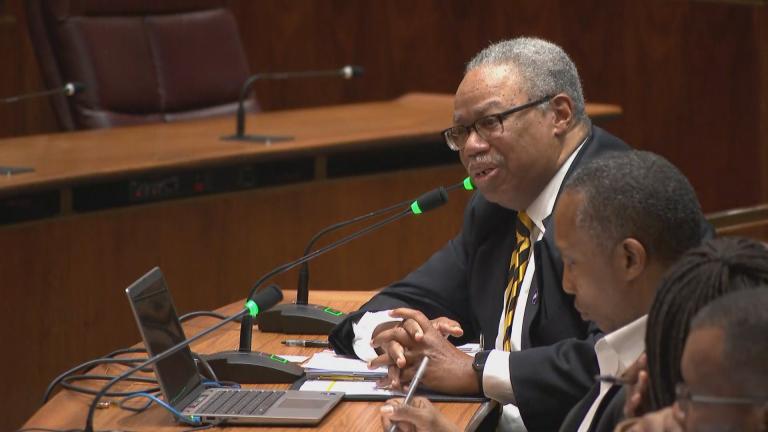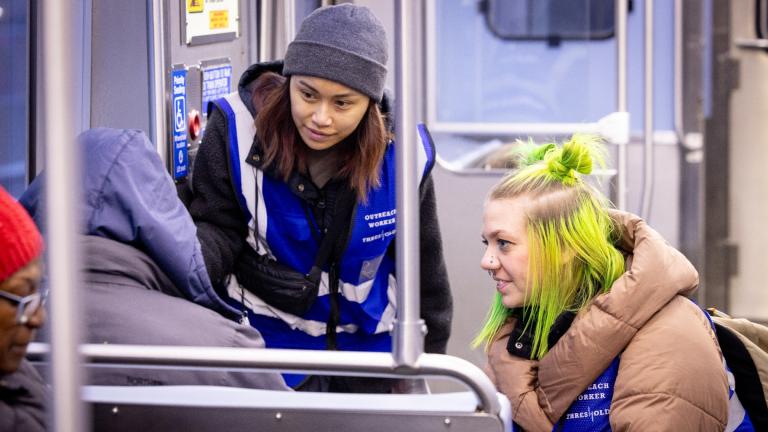The Chicago Transit Authority’s board of directors on Wednesday approved a $1.75 million settlement with a cyclist who was struck and run over by a CTA bus in June 2019.
Joseph Morgan, then 24, was hit while cycling in River North just after 8:30 a.m. June 6, according to a crash report filed by Chicago police. The bus and cyclist were both traveling southbound near the intersection of Wells and Hubbard streets. The bus was pulling up to a bus stop and Morgan was riding in the bike lane, the report states. Police say Morgan was transported to Northwestern Memorial Hospital with injuries to his arms, legs and torso. His bicycle was significantly damaged, according to the report.
Morgan sued the CTA and the bus operator, Sunday Ajayi, saying he suffered injuries leading to disability and disfigurement, significant medical bills and lost wages. Morgan’s attorney told WTTW News in 2019 his client faced significant orthopedic and gastrointestinal injuries as a result of the crash, necessitating a rerouted colon, and also faced blood loss and extensive road rash. Morgan stayed with family in Michigan while recovering from the crash and was unable to work, but his attorney says he was eventually able to resume working.
The CTA issued a statement to WTTW News on Wednesday, calling the incident “unfortunate” and saying that: “Based on the facts of this case and following mediation, CTA believes it is in the best interest of the agency to settle the lawsuit and has reached an agreement with the plaintiff, Joseph Morgan, to settle the lawsuit for $1.75 million.”
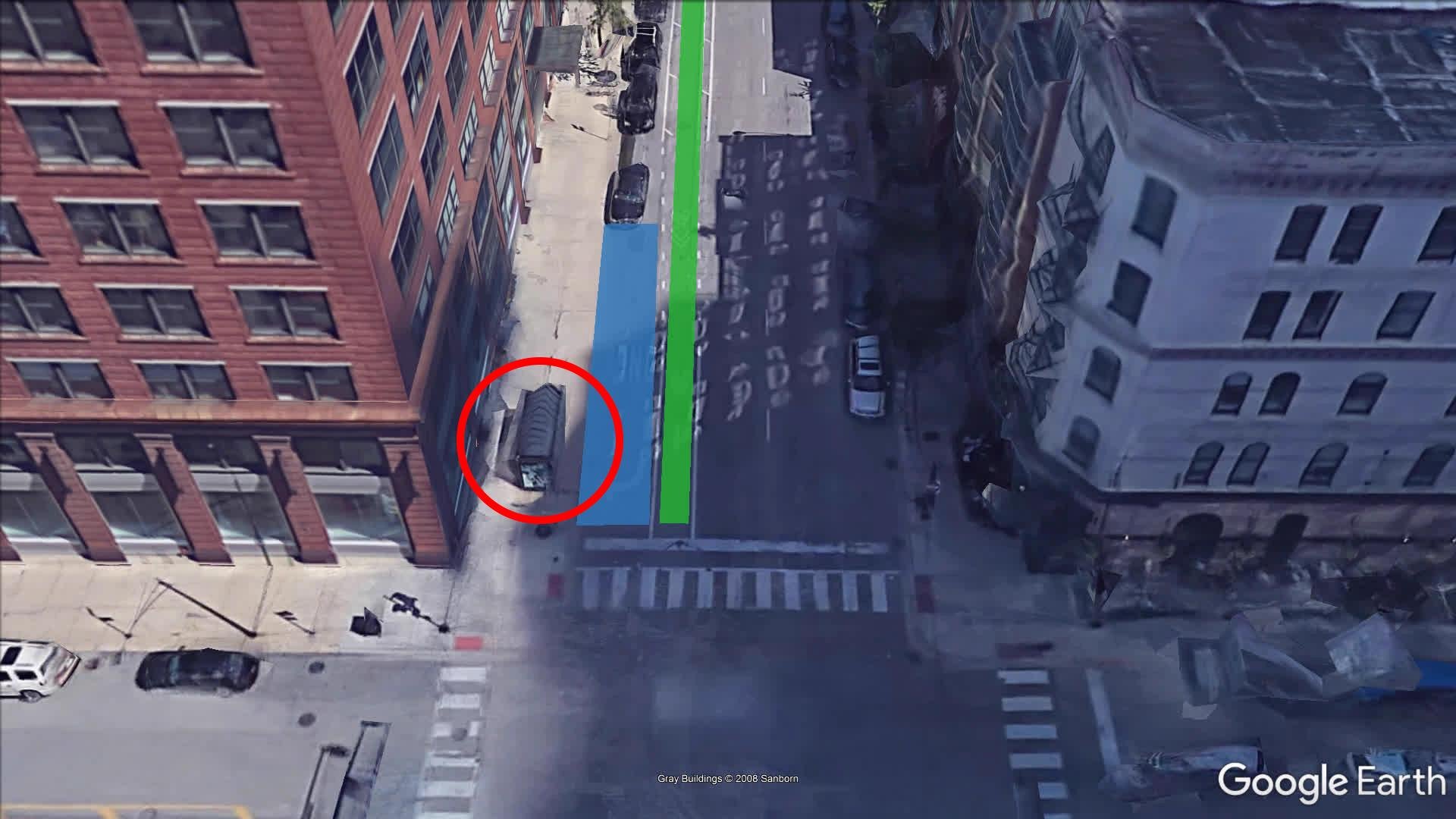 An aerial view of the intersection of Wells and Hubbard streets, looking north. A CTA bus struck a cyclist near the intersection in June 2019. According to police, the bus was pulling up to the bus stop, circled, and the cyclist was riding in the bike lane, in green. The bus lane is highlighted in blue. (Google Earth)
An aerial view of the intersection of Wells and Hubbard streets, looking north. A CTA bus struck a cyclist near the intersection in June 2019. According to police, the bus was pulling up to the bus stop, circled, and the cyclist was riding in the bike lane, in green. The bus lane is highlighted in blue. (Google Earth)
The CTA fired the bus driver, Ajayi, a month after the crash, which was his third on the job since January 2018, according to CTA documents. Ajayi also racked up 18 traffic tickets between 1989 and 2005, court records show, three of which were issued after he became a CTA employee.
Prior to his firing, Ajayi worked 532 hours of overtime in 2019, according to CTA records – an average workweek of nearly 60 hours. Drivers who work more than 40 hours in a week are paid overtime at a rate of time and a half, which meant that Ajayi’s base hourly pay of $35.36 increased to $53.04 when he worked overtime. In the years leading up to the crash, Ajayi was among the highest-paid CTA bus operators, earning $151,789 in 2018 and $117,998 in 2017.
In response to follow-up questions from WTTW News in 2019 about how commonly its drivers work overtime and whether the agency is understaffed, the CTA said it is “staffed appropriately to provide 1.5 million bus and train rides each weekday” and that employees are not assigned overtime, indicating they choose to work extra hours. “The safety of CTA riders and its employees is the top priority governing all CTA operations. CTA workplace rules ensure that bus operators have at least eight hours off between shifts, in keeping with industry best practices. … (An) operator is only eligible for overtime work if the end of the overtime shift is more than eight hours from the beginning of their scheduled work the next day,” the agency said in a statement.
In response to follow-up questions from WTTW News in 2019 about how commonly its drivers work overtime and whether the agency is understaffed, the CTA said it is “staffed appropriately to provide 1.5 million bus and train rides each weekday” and that employees are not assigned overtime, indicating they choose to work extra hours. “The safety of CTA riders and its employees is the top priority governing all CTA operations. CTA workplace rules ensure that bus operators have at least eight hours off between shifts, in keeping with industry best practices. … (An) operator is only eligible for overtime work if the end of the overtime shift is more than eight hours from the beginning of their scheduled work the next day,” the agency said in a statement. The CTA told WTTW News on Wednesday that its overtime policy has not changed.
WTTW News was unable to reach Ajayi for comment.


